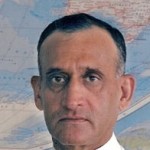
Admiral Arun Prakash retired as India’s 20th Naval Chief and Chairman Chiefs of Staff Committee in 2006. A naval aviator by specialization, he commanded a fighter squadron and four ships including the carrier Viraat. In flag rank, he commanded the Eastern Fleet, the National Defence Academy, the Andaman & Nicobar Joint Command and the Western Naval Command. He headed the Aviation and Personnel branches of the navy and was Vice-Chief before taking over as Chief of the Naval Staff in 2004. He was a member of the 2001 Arun Singh Task Force as well as the 2011 Naresh Chandra Committee on National Security Reform. Post-retirement he served two terms on the National Security Advisory Board and was Chairman of the National Maritime Foundation. He lives in Goa and writes and speaks on maritime and strategic issues.
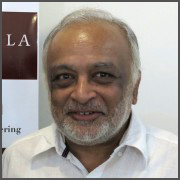
Mr Anand Arni was a career intelligence officer who served in the Research & Analysis Wing, India’s external intelligence, for 37 years, retiring in 2012 as the number two. In the R&AW, he spent over 25 years dealing with issues related to Pakistan and Afghanistan. He has also dealt with counter-insurgency in India’s Northeast and was a part of the team sent to Kandahar to negotiate with the hostage-takers of IC 814 in December 1999. Post-retirement, he continues to focus on India’s western neighbours. He writes, lectures and participates in conferences and track II initiatives on India’s ties with countries in this area.
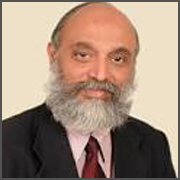
Commodore C Uday Bhaskar retired from the Indian Navy after 37 years of service in 2007. He was the Director of the National Maritime Foundation. He was also associated with the Institute for Defence Studies and Analyses (IDSA) from 1990 where he served as the Deputy Director (1996-2004) and later headed the Institute till late 2005. Subsequently, he was appointed Member-Secretary of the Government of India Task Force on ‘Global Strategic Developments’. Cmde Bhaskar is Editor, Maritime Affairs; and is on the Editorial Board of Contemporary Security Policy. He has edited books on nuclear and international security related issues and has contributed over 60 research articles to journals in India and abroad. He is a guest lecturer at the Indian National Defence College and other military colleges. He is a Life Member of the United Service Institute (USI) and is also Chairman of the Middle East Institute, New Delhi. He is on the Governing Council of the Indian Council of World Affairs (ICWA) and the Research and Information System for Developing Countries (RIS), as also on the Advisory Panel of the India Habitat Centre (IHC) in New Delhi. Cmde Bhaskar is also a columnist for Reuters and the Dainik Jagran.
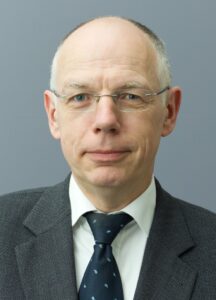
Dr Christian Wagner is a Senior Fellow at the German Institute for International and Security Affairs (SWP) in Berlin. He obtained his M.A. and PhD from Albert-Ludwigs-University Freiburg. From 1996 to 2001, he was an Assistant Professor at the Institute of Political Science and Administrative Studies at Rostock University. From 2001 to 2002, he was a Senior Fellow at the Institute for Development Research at the University of Bonn. He is a member of the European Association for South Asian Studies (EASAS) and the German Association for Asian Studies (DGA) where he was on the board of directors from 2007 to 2013.
From 2007 to 2014, he was head of the Research Division Asia at SWP. In 2015/16, he was a Visiting Fellow at the Observer Research Foundation (ORF), the Jawaharlal Nehru Institute for Advanced Studies (JNIAS) and the Institute for Defence Studies and Analyses (IDSA) in New Delhi. In 2019, he was Visiting Fellow at the Institute of South Asian Studies (ISAS) at the National University of Singapore (NUS). His main areas of interest are India, South Asia, and the Indo-Pacific with a special focus on domestic developments, foreign policy and security issues.
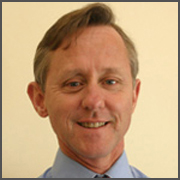
Christopher Langton spent 32 years in the British Army serving in a number of areas of the world. He was deputy head of the UN Observer Mission in Georgia (UNOMIG) in the mid-1990s and subsequently held a series of defence and military attache posts in Russia, the South Caucasus and Central Asia until he left the Army in 2001. He then joined the International Institute for Strategic Studies (IISS). He spent 9 years at IISS as Head of Defence Analysis, Research Fellow for Russia and the CIS and Senior Fellow for Conflict. While at IISS he was the focus of their research on Afghanistan. Since 2010 Christopher has run his own small not-for-profit group, Independent Conflict Research & Analysis (ICRA). Amongst other activities, ICRA produces a quarterly journal on trends in Central Asia and Afghanistan’s neighbourhood. ICRA also runs Conflict Analysis Training programmes for groups involved with conflict management and resolution.
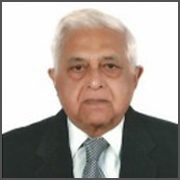
Ambassador Eric Gonsalves (retd) joined the Indian Foreign Service in 1950 and served in various capacities including Counsellor, London; Deputy Chief of Mission, Washington; Ambassador to Japan and the European Union; Secretary, Ministry of External Affairs (Vice Minister). After retirement, he served as Director India International Centre, Delhi 1986-91 and was Director Asian Relations Commemorative Conference in 1987. Amb. Gonsalves was a member of the International Observer Group for the Sri Lanka Elections 1989-94, Member of the Board of Management MAHE (now Manipal University) 1994-2006, President of the Institute of Peace and Conflict Studies, New Delhi (till April 2008). Currently, he is a Member of the Governing Body of the Centre for Policy Research, Delhi and the Convenor of the Indian Delegation BCIM (Bangladesh China India Myanmar) Forum.

Heidi Kingstone has spent her career covering events around the globe for prominent publications from the Financial Times to the Mail on Sunday. She interviewed key international figures, from Benjamin Netanyahu and HRH Princess Anne to Zaha Hadid and Daniel Libeskind. Her interest in human rights and dictatorships led her to Iraq on four occasions, travelling to Baghdad, Irbil, and Basra before and after the invasion in 2003. She has also reported from Africa, the Middle East, Bangladesh, and Mali. She reported extensively from Afghanistan and later wrote her first book, Dispatches from the Kabul Café (2014), a memoir of a country at a tipping point. War and genocide have fuelled Kingstone’s pursuits and informed her work. The latest is her book Genocide—Personal Stories, Big Questions, a unique look at 20th—and 21st-century genocide.
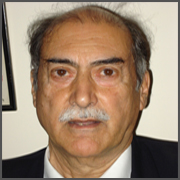
Ambassador I P Khosla (retd) Educated at St. Stephens College, Delhi University. and Emmanuel College, Cambridge, I.P.Khosla joined the Indian Foreign Service in 1960. He has served in a number of neighbouring countries: as India’s Representative in Bhutan; High Commissioner to Bangladesh; Ambassador to Afghanistan as well as Secretary in the Ministry of External Affairs. After retirement from service in 1996 he has written extensively on India’s relations with neighbours, South Asian cooperation as well as on security issues. He is currently Member Secretary of the Indian Council for South Asian Cooperation and Editor in Chief of South Asian Survey, the biannual journal of the Council.
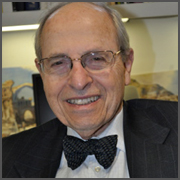
Prof. Marvin G. Weinbaum is professor emeritus of political science at the University of Illinois at Urbana-Champaign, and served as analyst for Pakistan and Afghanistan in the U.S. Department of State’s Bureau of Intelligence and Research from 1999 to 2003. He is currently a scholar-in-residence and Director of the Pakistan Center at the Middle East Institute in Washington DC. Professor Weinbaum has his doctorate from Columbia University in 1965, his MA from the University of Michigan in 1958, and his BA from Brooklyn College in 1957. In 1965 he joined the faculty of the University of Illinois at Urbana-Champaign. At Illinois, Dr. Weinbaum served for fifteen years as the director of the Program in South Asian and Middle Eastern Studies.
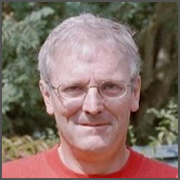
Dr Paul B Rich is the editor of the journal Small Wars and Insurgencies and currently lives in the UK. He has taught at the universities of Bristol, Warwick and Melbourne and is the author of a number of books and articles on insurgencies, terrorism and warlordism. He has also written extensively on politics and history in South Africa and is currently completing a book Cinema and Guerrilla Warfare. As a consultant for TRENDS: Research & Advisory he is co-editing a volume Jihadist Insurgencies, which is to be published by Routledge in 2016.

Pranay Gupte is an established biographer and historian, and veteran foreign correspondent. He is also a blogger for The Huffington Post, and an occasional columnist for such publications as The Hindu. He previously worked for nearly two decades for The New York Times in the United States, Africa, the Middle East, and Asia. He also wrote a column for Newsweek International for two decades, and was a contributing editor at Forbes. Mr. Gupte, who lives between Dubai and Delhi, has produced more than 50 documentaries for public television in the US. His hobby is photographing people around the world.
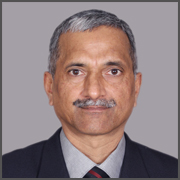
Rahul K Bhonsle is an army veteran with over three decades of active service. He is an independent consultant on research in defence and security issues in Asia and Director of Security Risks Asia, an Asian Risk and Knowledge Management consultancy based in Delhi.
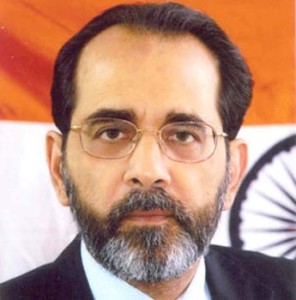
Rakesh Sood joined the diplomatic service in 1976 and served in the Indian missions in Brussels, Dakar, Geneva, and Islamabad in different capacities and also as Deputy Chief of Mission in Washington. In Delhi, Ambassador Sood served as Director (Disarmament) and set up the Disarmament and International Security Affairs Division which he led for eight years till end of 2000 as Joint Secretary (D&ISA), in the Foreign Ministry. During this period, he was responsible for multilateral disarmament negotiations, bilateral dialogues on CBMs with Pakistan, strategic dialogues with other countries especially after the nuclear tests in 1998, and India’s role in the ARF.
Subsequently, he has served as Ambassador and PR to the Conference on Disarmament in Geneva (2001-04), Ambassador to Afghanistan (2005-08), Ambassador to Nepal (2008-11) and Ambassador to France (2011-13). In September 2013, Ambassador Rakesh Sood was appointed Special Envoy of the Prime Minister for Disarmament and Non-Proliferation Issues; he held this position till May 2014, when he retired from government.
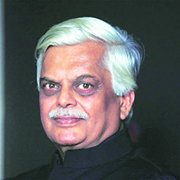
Dr Sanjaya Baru is Director for Geo-economics and Strategy, International Institute of Strategic Studies (IISS), London; and, Honorary Senior Fellow, Centre for Policy Research, New Delhi. He was Media Advisor to Prime Minister of India, Dr Manmohan Singh and also Prime Minister’s spokesperson and principal speechwriter, between 2004 and 2009. He has been Chief Editor, The Financial Express and Business Standard; and Associate Editor, The Times of India and The Economic Times. In 2009 he was a Visiting Professor at the Lee Kuan Yew School of Public Policy and Institute of South Asian Studies, Singapore. He has Professor, Indian Council for Research in International Economic Relations (1999-2000) and at the Departments of Economics of Jawaharlal Nehru University (1985-86) and University of Hyderabad (1979-1990). Between 1999 and 2001 Dr Baru was Member of the National Security Advisory Board of India, and in 2011-12 he was Member of the India-ASEAN Eminent Persons Group. He is Founder-Trustee, Forum for National Security Studies & Centre for Air Power Studies, Delhi; Member, Governing Board, Centre for Policy Research & India Habitat Centre; Member, Advisory Council, India International Centre; and Member National Executive Committee of the Federation of Indian Chambers of Commerce & Industry (FICCI). Dr Baru’s publications include Strategic Consequences of India’s Economic Performance (Routledge, 2006), The Political Economy of Indian Sugar (Oxford University Press, 1990) and several essays in journals and newspapers in India and abroad. His most recent book is The Accidental Prime Minister: The Making and Unmaking of Manmohan Singh, Penguin Random House, 2014.
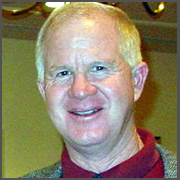
Prof. Thomas A. Marks is Distinguished Professor & MG Edward G. Lansdale Chair of Irregular Warfighting Strategy at the School for National Security Executive Education (SNSEE) of National Defense University (NDU) in Washington, DC. He assumed his present rank and position on 1 July 2016 after 12 years as the founding Chair of the War and Conflict Studies (WACS) Department, as well as Professor of Terrorism, positions he was asked to occupy at CISA following 9-11 as a consequence of his extensive academic and field experience concerning irregular warfare.
A former US government officer who is a member of the editorial board of Small Wars and Insurgencies (London), he previously served as the Oppenheimer Chair of Warfighting Strategy at the Marine Corps University (Quantico) and as a longtime Adjunct Professor at both the Air Force Special Operations School (AFSOS) and the intelligence community’s Sherman Kent School. In 2006, he was named awarded AFSOS Educator of the Year; in 2007, he received the Royal Military Institute of Manitoba “Fellow” Award. A graduate of the United States Military Academy, Dr. Marks completed his doctoral work in his home state of Hawaii, where for 14 years he was Chair and Professor of Social Science at Academy of the Pacific, a private high school, and – for more than two decades – a highly successful cross country and track coach.
He has authored hundreds of publications. His most recent books, both edited volumes, are the People’s War: Variants and Responses (2018) and Perspectives on the American Way of War: The U.S. Experience in Irregular Combat (2019). He was awarded the Military Medal “Faith in the Cause” on 28 July 2014 by the Colombian Army for contributions to the country’s counterinsurgency effort, and in 2016 received a MINERVA grant to pursue fieldwork on the topic of female combatant motivation in the Nepali Maoist insurgency. Appropriate publications have followed. Most recently, his co-authored article (with CISA’s Dr. David Ucko), “Violence in Context: Mapping the Strategies and Operational Art of Irregular Warfare,” Contemporary Security Policy (February 2018), received the Bernard Brodie Prize 2019 for the best 2018 article. It may be added in passing that during the heyday of Soldier of Fortune, Marks was for a decade the magazine’s Chief Foreign Correspondent.
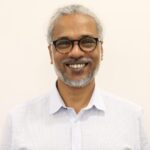
Professor V. Krishnappa is a philosopher and the Head of the Philosophy Programme at the School of Liberal Arts and Sciences (SoLAS), RV University Bengaluru. He is also the Director of RVU’s Mahatma Gandhi Centre for Contemporary Ethics (MGCCE). Krishnappa’s teaching and research interests include Ancient Greek Philosophy, Continental Philosophy, the work of Ludwig Wittgenstein, Tolstoy, philosophical and literary reading, philosophy and the liberal arts education, pedagogy, and critical thinking.
Prior to joining RVU Krishnappa was a Doctoral Research Fellow at O.P. Jindal Global University in the area of Philosophy and Literature (2015-21). Krishnappa holds a PGDip in Strategy and Innovation from the Saïd Business School (SBS), University of Oxford, and an MSc in Defence and Strategic Studies from the University of Madras. He also earned a certificate in Business Management from the Indian Institute of Management, Ahmedabad (IIM-A, 2013-14) and a Certificate in Peace Research from the University of Oslo, Norway (2008). He is also a graduate of Defence Services Staff College (Wellington,2001-02) the SEAS programme (USIEF, Hawai, 2008), College of Air Warfare (Secunderabad, 1995), and the Air Force Administrative College (Coimbatore, 1994), Pre Flying Training College (1988), Basic Flying Training School (1989), Air Force Academy, (1990).
Krishnappa has over 30 years of experience with 18 years in teaching and research. Krishnappa was a Research Fellow at the Institute for Defence Studies and Analyses (IDSA) between 2004 and 2013. He has a number of publications to his credit in peer-reviewed journals, book chapters and five edited volumes in the fields of national strategy, international relations and security studies. During his Fellowship at IDSA, Krishnappa led many large international and interdisciplinary projects including the IDSA- DRDO Strategic Futures 2050 project commissioned by the Government of India, and a project with the Norwegian Institute for Defence Studies (IFS) on India’s Grand Strategy: History, Theory, Cases.. Previously, he served in the Indian Air Force (IAF) on active duty between 1986 and 2004 holding various operational and management positions, retiring after attaining the rank of Group Captain (Select).
